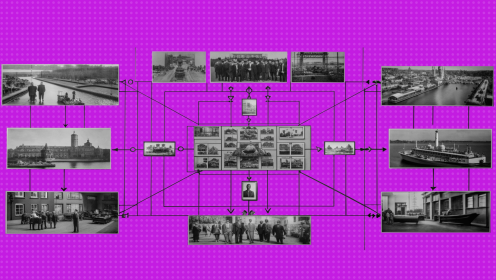Why are there conflicts on the remote
Sometimes it seems that conflicts with colleagues occur only when you work together in the office. But this is not the case — even if you do not see each other every minute, and communicate only in chats and on calls, a conflict may still arise.
Sasha Mashkov has already talked about work conflicts and their causes:
1. Poor management. For example, pressure on employees, lack of important information, etc.
2. Different views of team members on the work process, different habits, etc.
On the remote with all this things are even worse. According to Avito, the need for psychologists has increased by 150% since the beginning of quarantine — due to the fact that communication with people and walks in the fresh air have been minimized at a distance, and it is not so pleasant to endure a monotonous home environment for a long time. Everything starts to annoy, aggressiveness increases, any little thing can get out of itself: a colleague has missed deadlines or is trying to delegate his task to you, etc. That's just how well the work will be done depends on the relationship between employees. Quarrels and misunderstandings will only reduce productivity and worsen the result.
What to do if a conflict is brewing
Imagine: you are sitting at home in front of your laptop, solving work tasks and, suddenly, a negative message from a colleague arrives in your personal account that you did not have time to do something there. Most likely, your response will be negative, and it is difficult to discuss everything constructively, because you both work remotely. If the situation is not adjusted, the conflict will grow like a snowball, involving even more people.
But all is not lost. Here are the steps to take in order not to aggravate the situation.
1. Pay attention to lunges
We often do not notice (or notice, but forget about it) that relations with colleagues are heating up. But if in life at least it is relatively easy to track any nonverbal and verbal actions, then in correspondence all that is possible is to listen to the voice of the interlocutor during the call or read emotions from the text. It seems easier to score, even if there is a feeling that something is wrong.
To prevent a conflict, listen to your intuition, try to note any sarcastic comments, ignoring from colleagues, etc. — in general, everything that looks like a disrespectful attitude.
If you are a manager, carefully monitor the relations in the team in order to see any deterioration in time. And with a growing conflict — discuss the situation with each side separately, ask for feedback about working in the company, etc. So the chance to keep the relationship in the team normal will be higher.
2. Analyze whether the situation is worth attention
Remember how you received a message from a colleague, where he accused you that you didn't have time for something. If you complete the first step and pay attention to the negative context of the message, analyze it by answering a few questions:
A quarrel can lead to a deterioration of relations with a colleague?
A quarrel can lead to a conflict?
Can the situation involve someone else from the team?
Am I really the reason for the accusations/discontent, etc.?
Is there anything I can do to settle the conflict?
After you answer all these questions, the situation will clear up. You realize whether you are really to blame for the conflict or just got into a hot hand and you should not pay attention to it, because in a couple of days everyone will forget about it, or the conflict will worsen if you do nothing.
3. Talk to your opponent in person
The main thing in resolving any conflict is negotiation or two—way communication. It is necessary not just to express their dissatisfaction, but for both sides to listen to each other and come to a common opinion. Let's analyze this step in more detail:
- Study your opponent and identify the root cause of the conflict. Find more points of contact — some common points, jokes and try to establish contact.
- Keep yourself in hand and respond neutrally to any accusations. Do not engage in open confrontation — even if a colleague is rude. If the altercation turns into an open conflict, other team members are likely to be involved, and it will be more difficult to fix such a quarrel.
- Offer to call, preferably by video. Negotiations are a process of consecutive statements, in terms of correspondence, you can skip the opponent's messages. During the call, he will have no choice but to listen to another position.
- Listen to your opponent. Conflict is a clash of interests, so try not only to defend your own, but also to analyze the interests of another person, to look at the situation from his angle.
- Don't interrupt. Always let a colleague finish his speech, do not interrupt him to insert a word and defend himself. If the reason for the conflict is that you got into a hot hand, let the opponent speak out — releasing emotions, he will calm down and think more clearly. So you can settle the conflict without wasting your emotional resources.
- Defend your personal boundaries. Competently show that you don't like such an appeal to yourself and that accusations can be made in a delicate format.
Try not to lead to conflicts in the future: maintain respectful relationships with colleagues so that they do not have dissatisfaction. Do not cross other people's personal boundaries, do not call and do not demand to be involved in tasks during non-working hours, etc.
Conflicts are an integral part of teamwork. But keep in mind that there are mini-skirmishes that will be forgotten in a couple of days, and there are quarrels that flow into a deterioration of relations and which can involve even more employees in the conflict. Work efficiency, productivity and much more suffer from this. It's better to deal with this as early as possible.


















